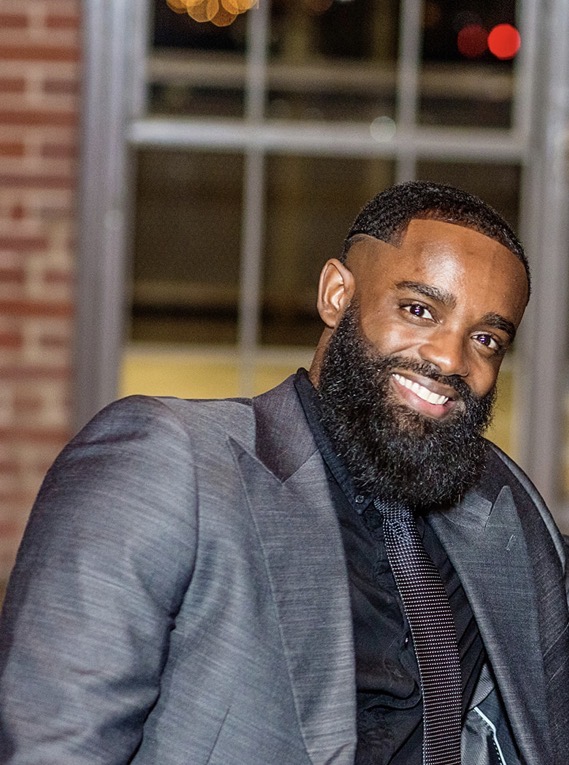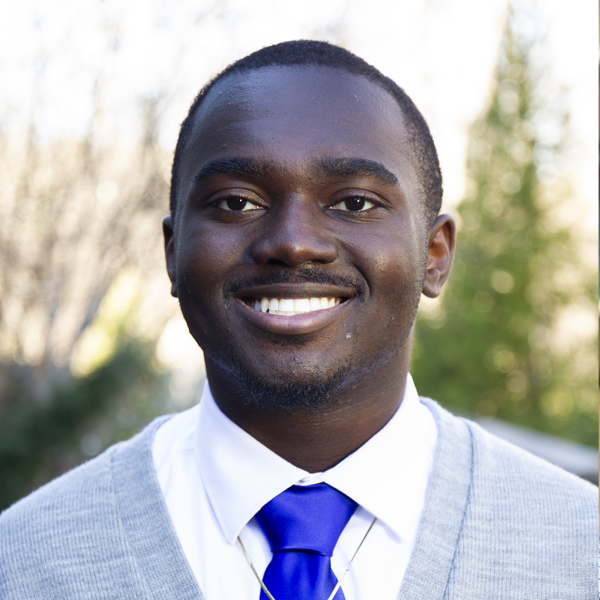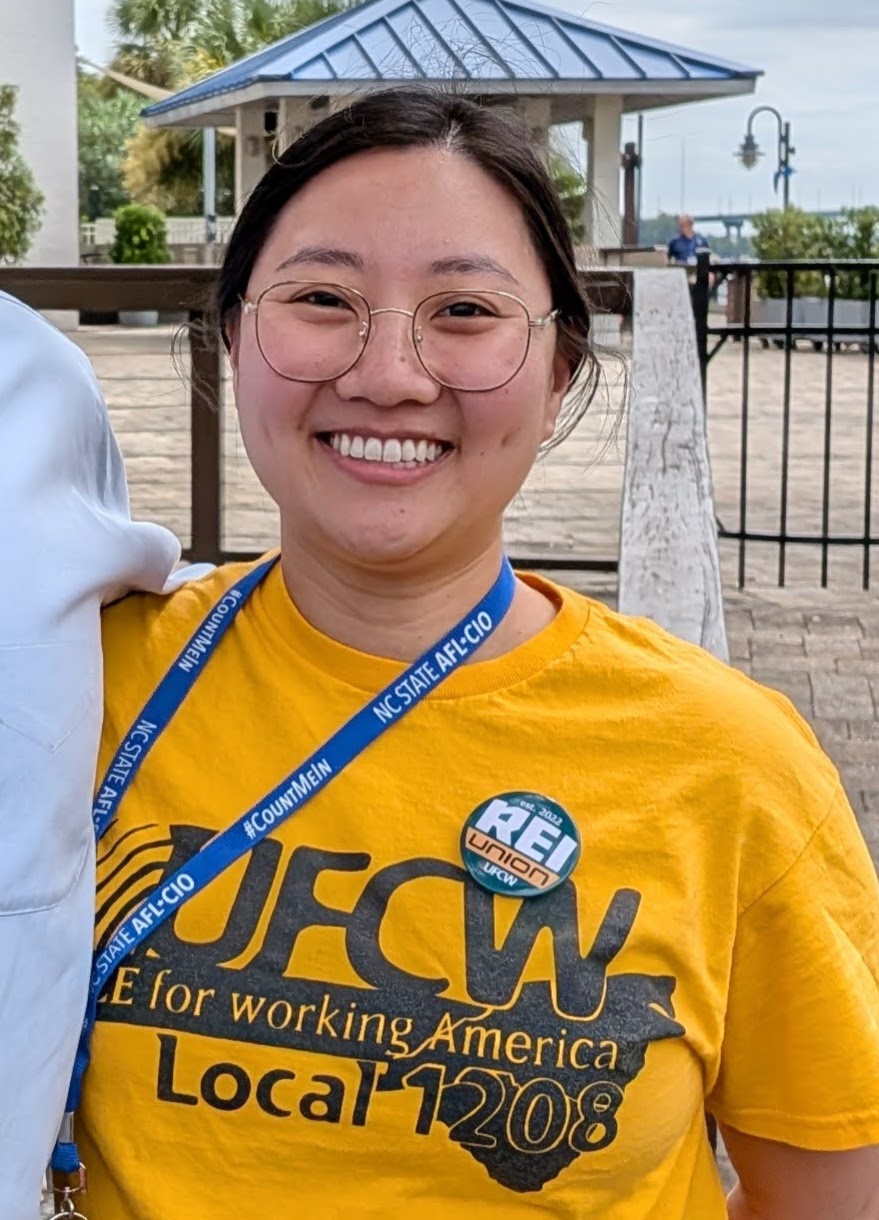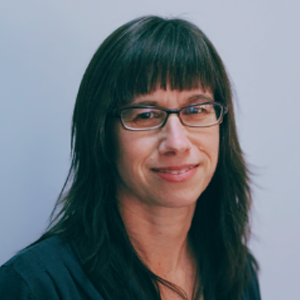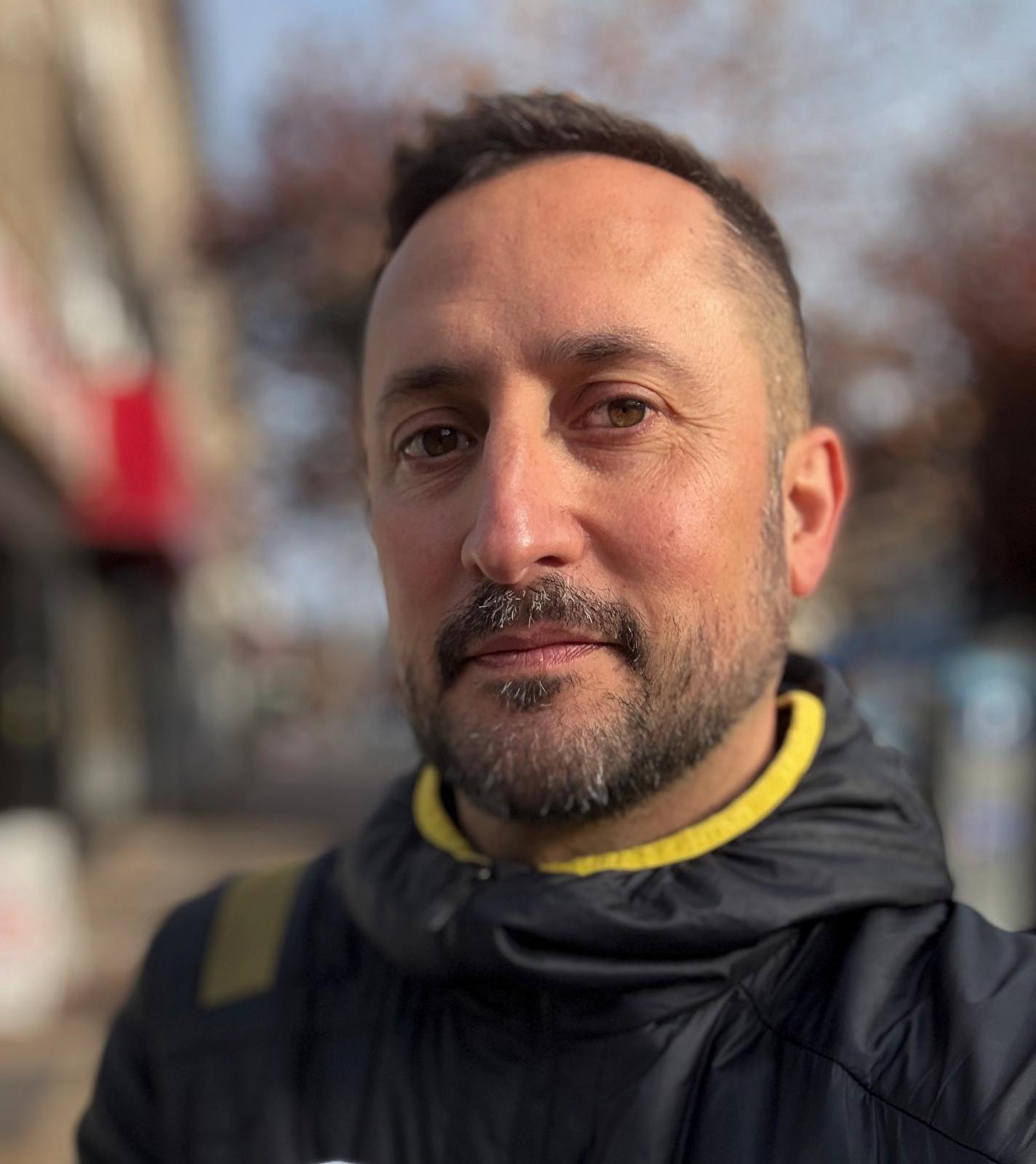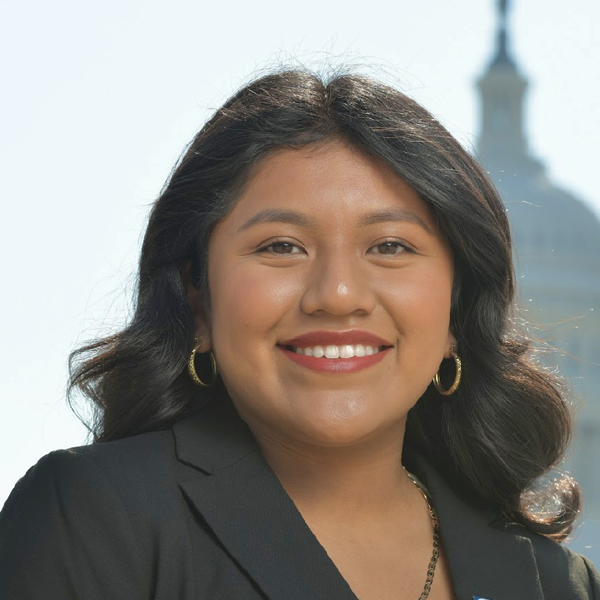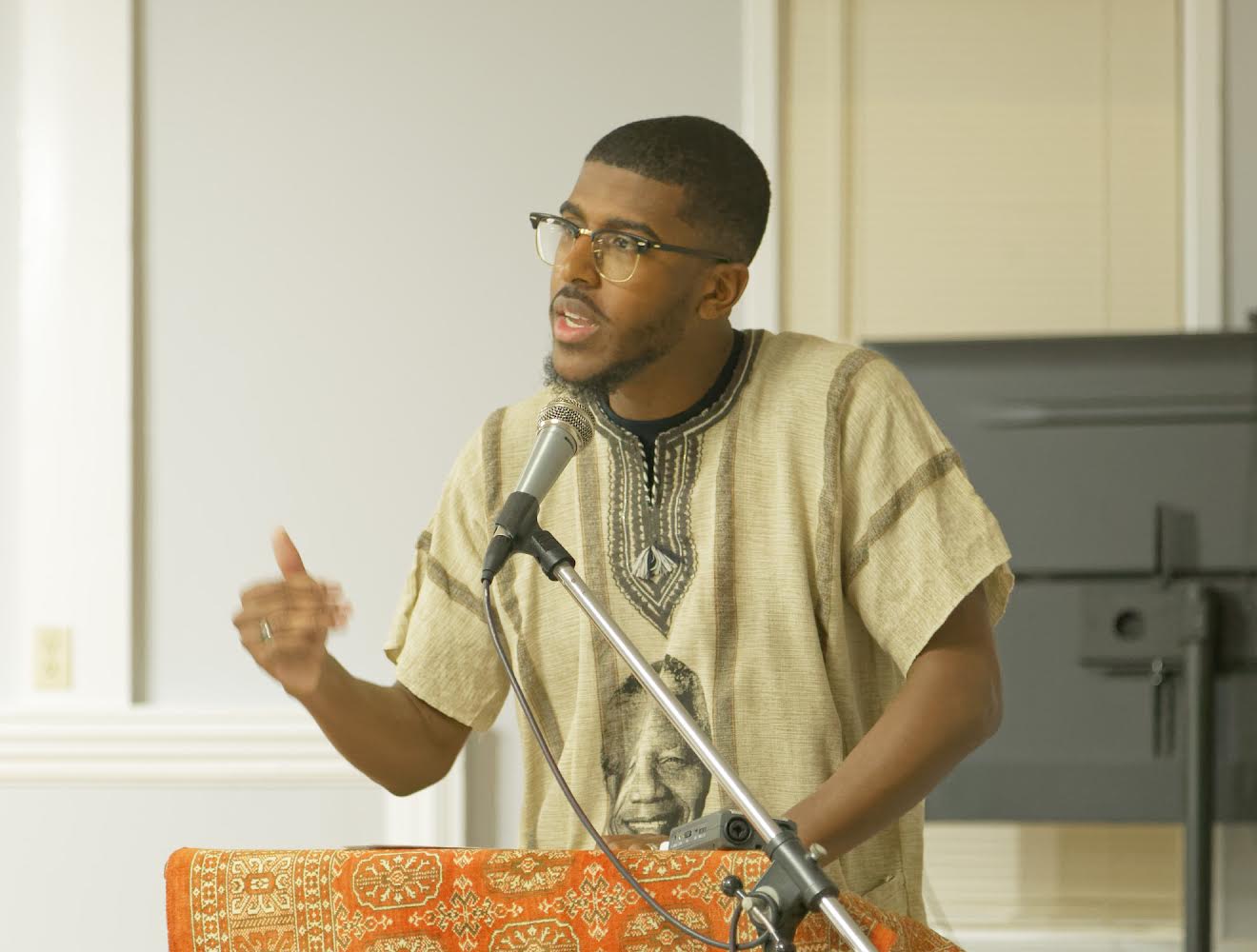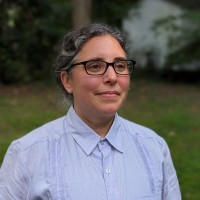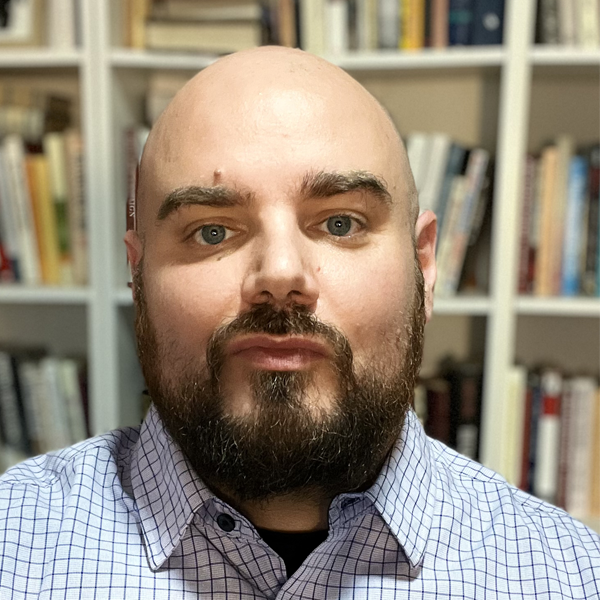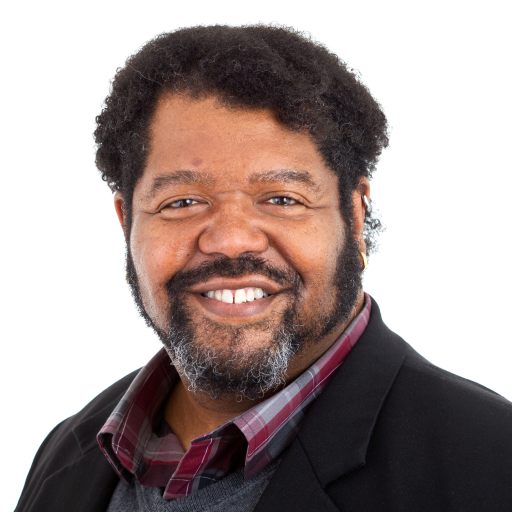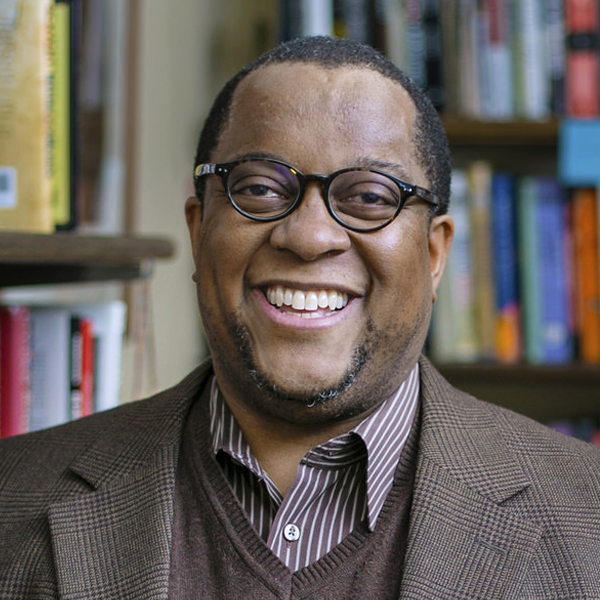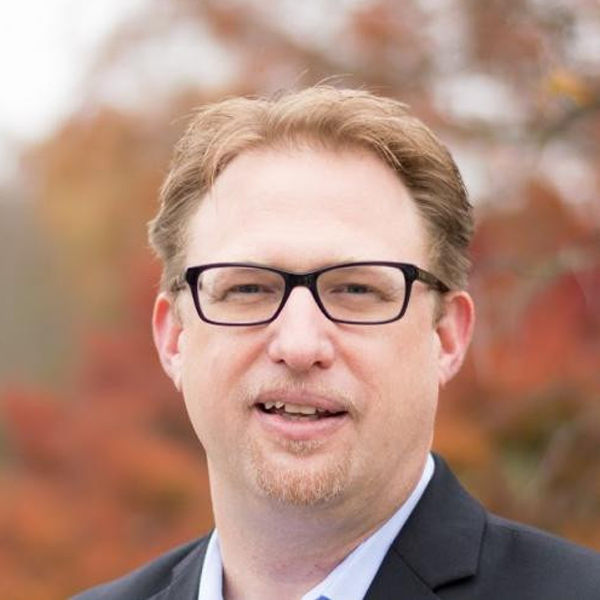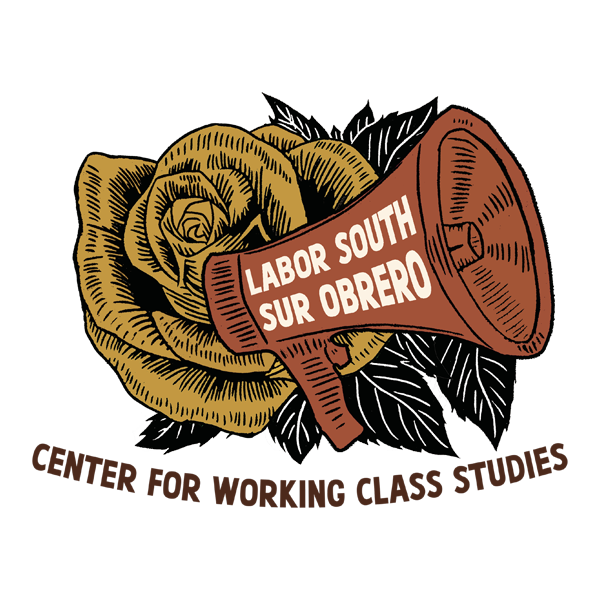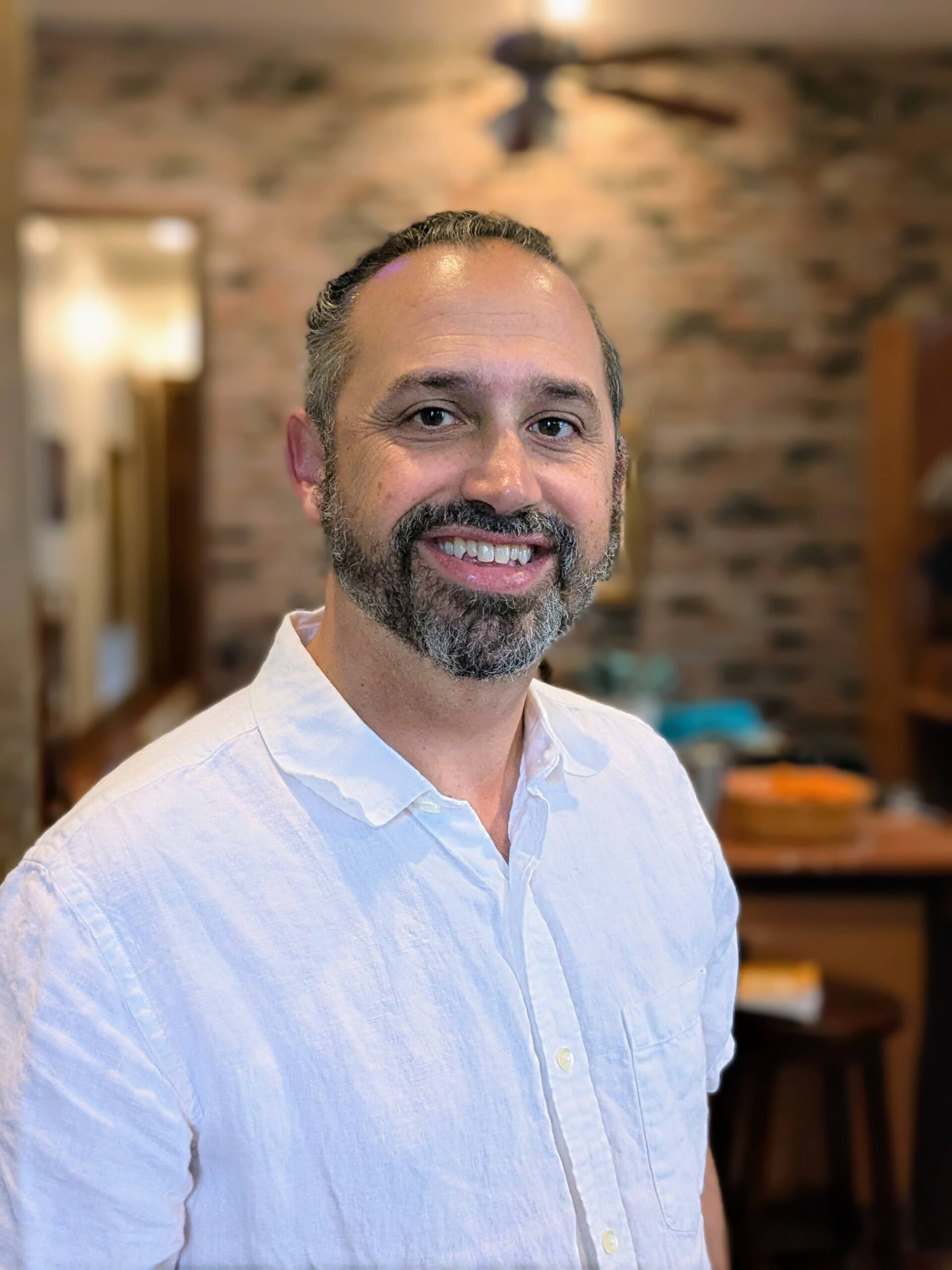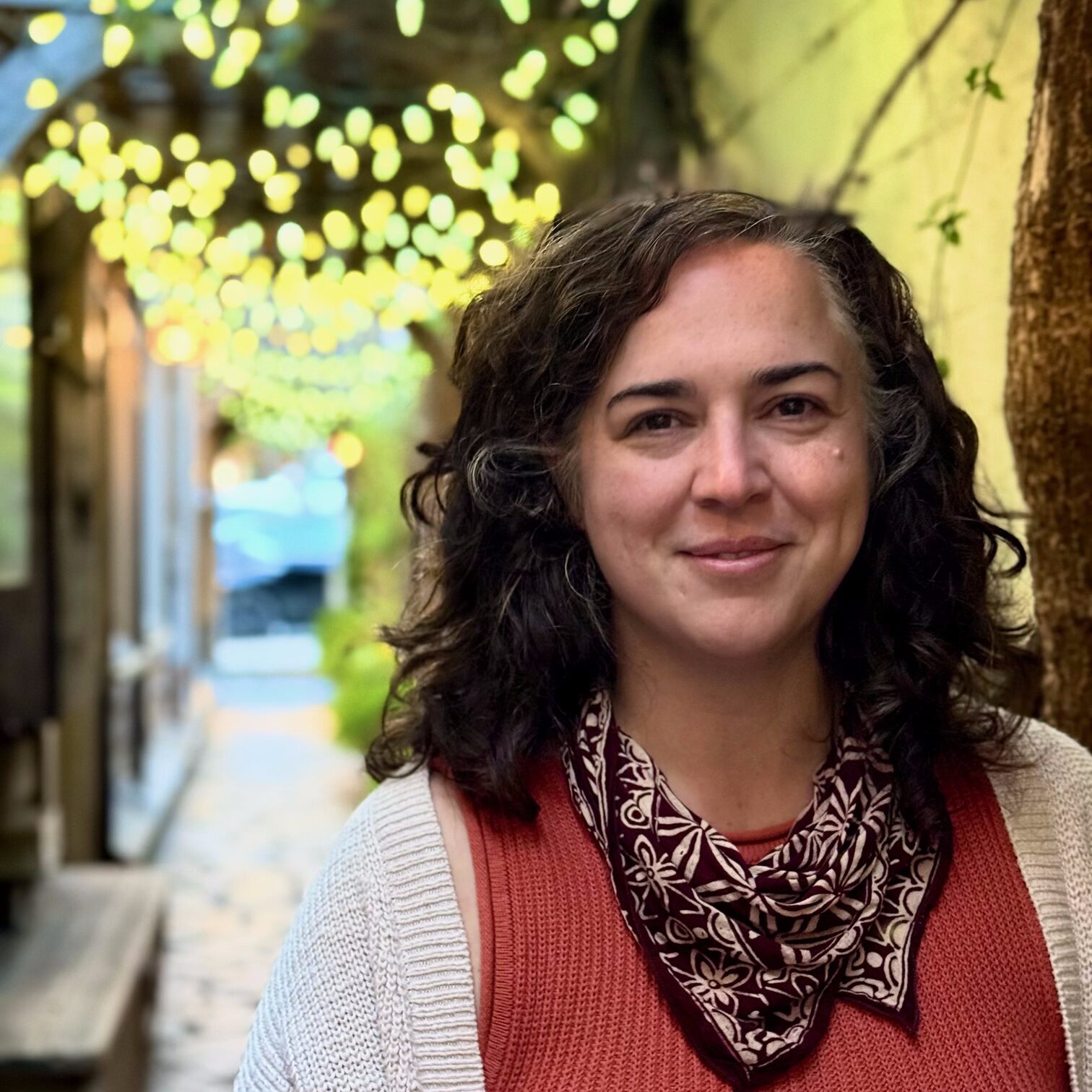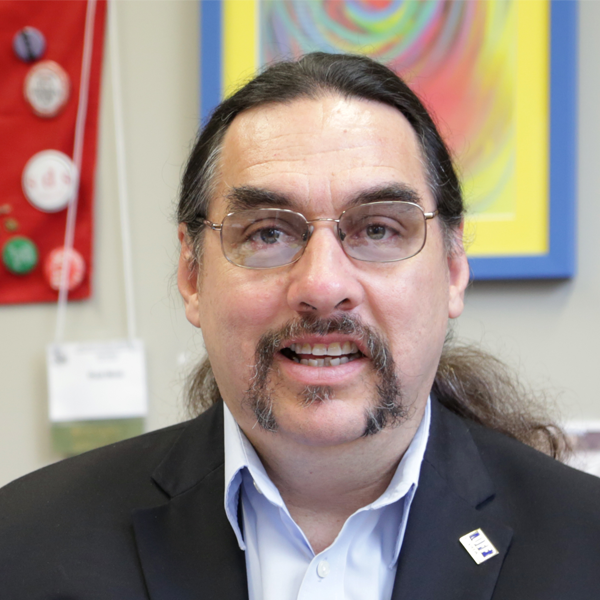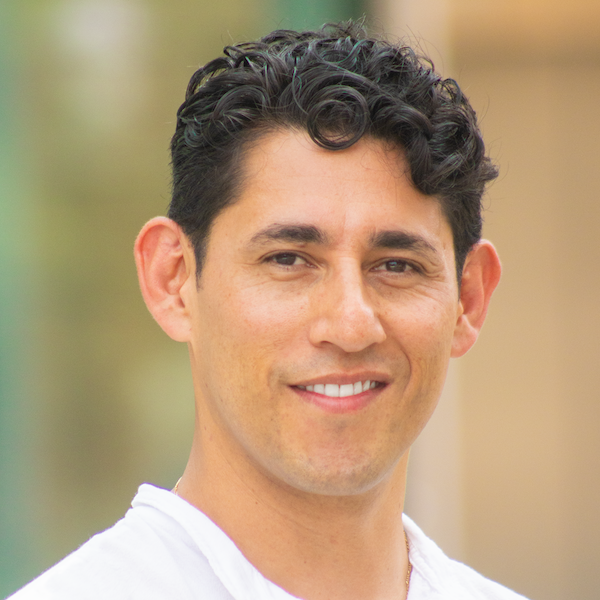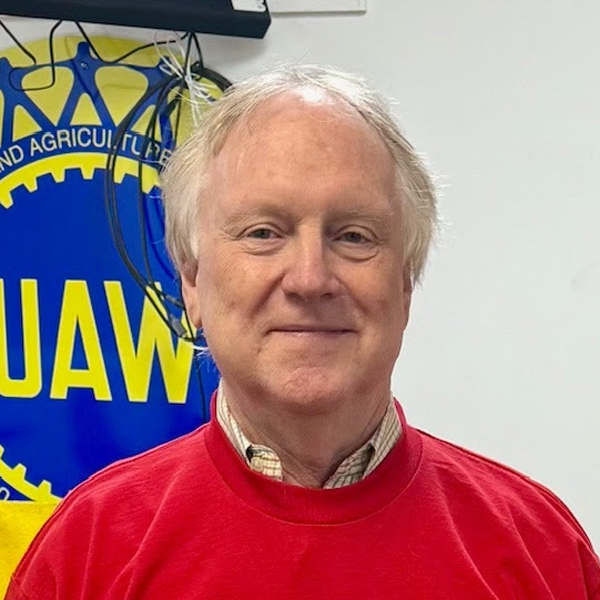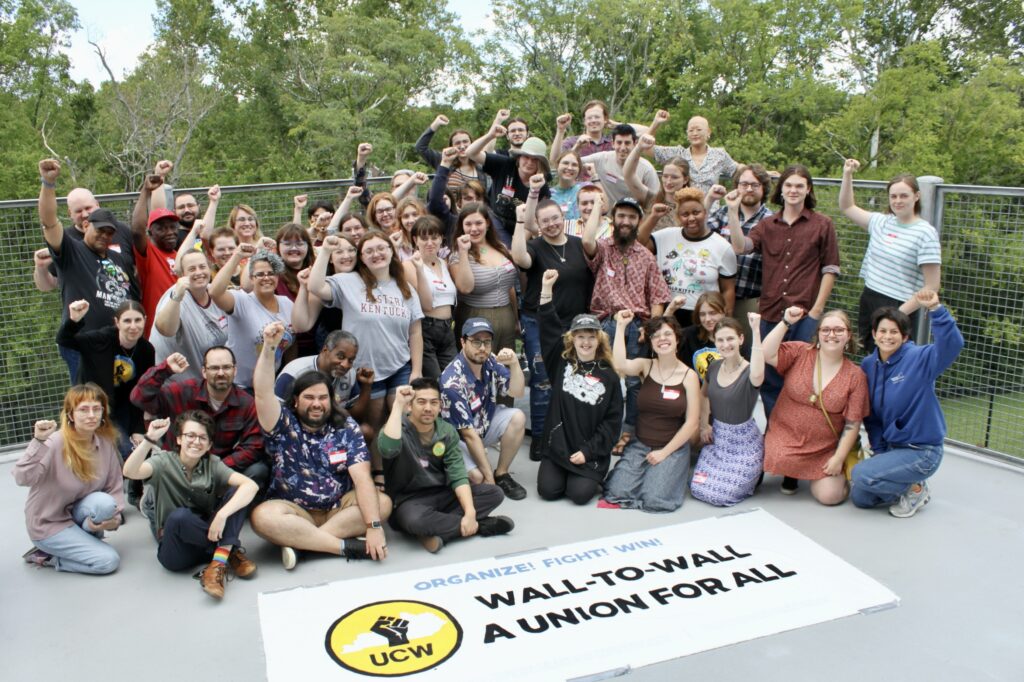
Mission
Labor South: Center for Working Class Studies brings together students, workers, organizers, educators, and artists to strengthen the movement for racial and economic justice in the US South. Labor South engages academics and movement leaders to come together through local geographic hubs, as well as a virtual center and in-person training, for political education and labor studies and to build a career pipeline with working class young people.
Background
The US South faces enormous challenges to economic justice – from racial and class-based segregation, to right-to-work laws, to a lack of investment in education about the region’s history and people. The US South also has a long and rich history of individuals and groups that have organized their communities, families, places of faith, and workplaces. Working-class communities in the US South have generational knowledge of and experience with resistance to oppression.
There is a historic and current lack of investment in infrastructure to support the growing number of unions and worker organizations in the region. There has also been a lack of commitment by academic institutions to labor studies in the South. Through popular education, Labor South is increasing awareness and analysis of labor issues in order to improve racial and economic conditions in the US South.
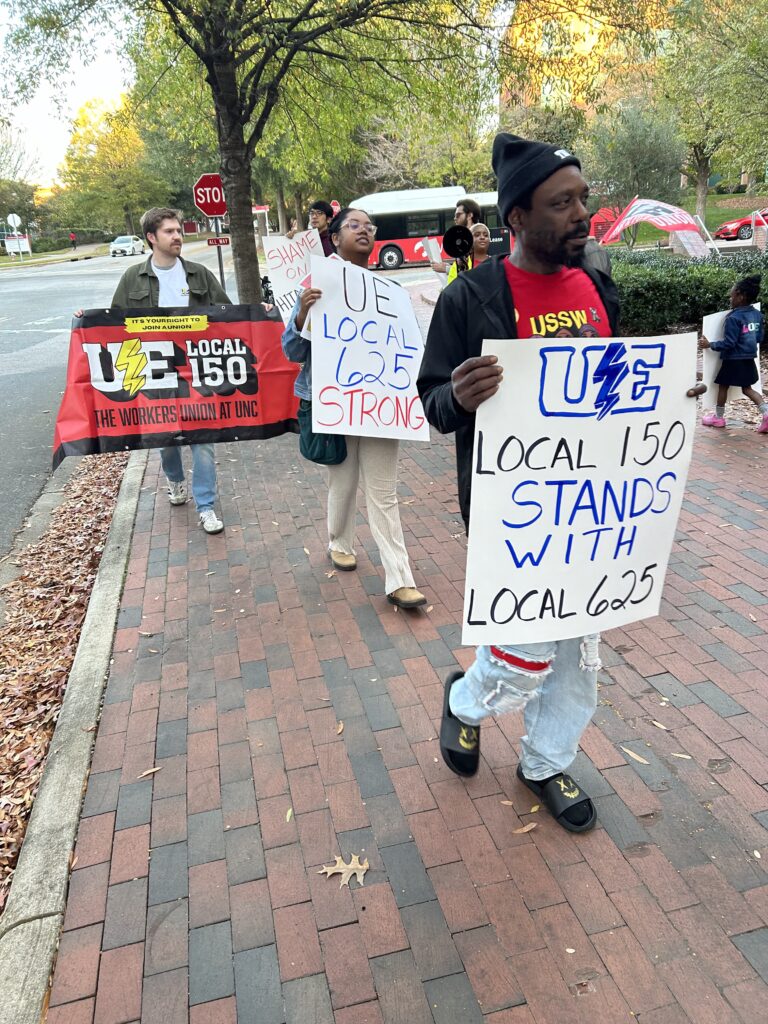
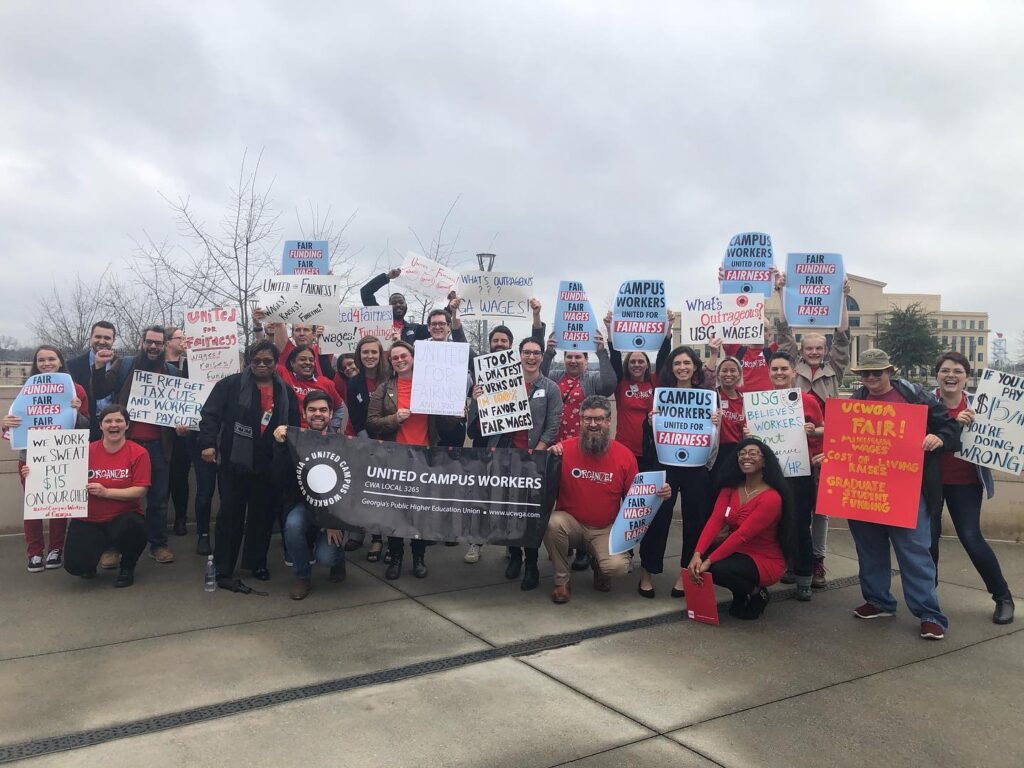
Who We Are
Leadership
Isaiah Withers is a Senior Organizer with Forward Justice based in North Carolina. Rooted in rural Black working-class communities, his organizing work spans base-building, leadership development, and campaign strategy across the U.S. South. He has organized frontline Black workers in poultry plants and industrial workplaces, partnering with the Occupational Safety and Health Administration (OSHA), the Equal Employment Opportunity Commission (EEOC), and the U.S. Department of Labor to address wage theft, unsafe conditions, and racial discrimination. His work is driven by a commitment to advancing justice, safety, and labor rights for Black workers in rural communities across the South.
Isaiah Withers is a Senior Organizer with Forward Justice based in North Carolina. Rooted in rural Black working-class communities, his organizing work spans base-building, leadership development, and campaign strategy across the U.S. South. He has organized frontline Black workers in poultry plants and industrial workplaces, partnering with the Occupational Safety and Health Administration (OSHA), the Equal Employment Opportunity Commission (EEOC), and the U.S. Department of Labor to address wage theft, unsafe conditions, and racial discrimination. His work is driven by a commitment to advancing justice, safety, and labor rights for Black workers in rural communities across the South.
Joe Asamoah-Boadu is Labor South’s first intern via partnership with Duke University Sanford School of Public Policy and Center for Documentary Studies. He is a rising senior at Duke University majoring in public policy, with minors in education and African and African American studies. He is originally from Charlotte, North Carolina, and was raised by his working-class Ghanaian parents. This upbringing and his experience in several service jobs attracted him to Labor South. He is strongly passionate about storytelling and aspires to obtain his JD post-college to better advocate for marginalized people, specifically focusing on civil rights and education spaces.
Joe Asamoah-Boadu is Labor South’s first intern via partnership with Duke University Sanford School of Public Policy and Center for Documentary Studies. He is a rising senior at Duke University majoring in public policy, with minors in education and African and African American studies. He is originally from Charlotte, North Carolina, and was raised by his working-class Ghanaian parents. This upbringing and his experience in several service jobs attracted him to Labor South. He is strongly passionate about storytelling and aspires to obtain his JD post-college to better advocate for marginalized people, specifically focusing on civil rights and education spaces.
Megan Jang Shan (she/her) is a worker at the unionized REI store in Durham, NC. She helped organize the store from the beginning, through the union election in May of 2023, and also represents her store in bargaining for a first union contract. Since becoming involved in the labor movement, she has worked to support other organizing workers in the North Carolina Triangle area, and is a member of the NC AFL-CIO’s Triangle Labor Council and the Durham Workers Assembly. She also enjoys singing with the Durham Labor Choir.
Megan is a long-time North Carolina resident, and graduated from Johns Hopkins University with a degree in Writing Seminars. She hopes to pursue labor law to further advocate for workers’ rights.
Megan Jang Shan (she/her) is a worker at the unionized REI store in Durham, NC. She helped organize the store from the beginning, through the union election in May of 2023, and also represents her store in bargaining for a first union contract. Since becoming involved in the labor movement, she has worked to support other organizing workers in the North Carolina Triangle area, and is a member of the NC AFL-CIO’s Triangle Labor Council and the Durham Workers Assembly. She also enjoys singing with the Durham Labor Choir.
Megan is a long-time North Carolina resident, and graduated from Johns Hopkins University with a degree in Writing Seminars. She hopes to pursue labor law to further advocate for workers’ rights.
Melinda Wiggins is originally from the Mississippi Delta, where her family still resides. She grew up in a segregated working class community and is the daughter and granddaughter of sharecroppers. Melinda was the first in her family to graduate from college. She studied political science and history at Millsaps College, where she began exploring the civil rights movement in the US South, was active with the anti-apartheid movement on campus, and worked with the MS PEER legislative committee helping to redraw district lines in the Mississippi Delta. Melinda moved to Durham, North Carolina to study at Duke Divinity School, where she focused on liberation and feminist theology.
Melinda got involved with Student Action with Farmworkers as an intern and served as the Program Director and then Executive Director. Through her nearly 30 years at SAF, Melinda led and supported efforts to create learning communities for young people interested in workers’ rights, facilitated community-labor alliances, built greater support for equity within the nonprofit sector, and educated philanthropy about the need to support agricultural workers in the South. In March 2012, she was honored by the Obama White House as a recipient of the “Cesar Chavez Champion of Change” award. Melinda helped initiate two key statewide coalitions in North Carolina–the Adelante Education Coalition and the Farmworker Advocacy Network—focused on immigrant and farmworker rights. She co-edited The Human Cost of Food, Farmworkers’ Lives, Labor, and Advocacy. While at SAF, Melinda was engaged with a number of community and worker organizing efforts, including Wake Forest School of Medicine Center for Worker Health; STITCH, a group that built solidarity between women workers in the US and in Central America; and Windcall Institute, a social justice residency program.
After transitioning from SAF, Melinda worked with the Labor Innovations for the 21st Center (LIFT) Fund as the Director of Strategy and Operations for three years. While at LIFT, she was able to connect with worker centers and labor unions throughout the US South and across the country. She was a part of LIFT’s launch of the Southern Workers Opportunity Fund and Imperial Valley grantmaking, the creation of grantee support programs that incorporated training, coaching, and rest, and the development of LIFT’s internal capacity, staffing, policies, fundraising, and financial management. She currently serves on the board of Migrant Clinicians Network and participates in the US Campaign to End Child Labor. Melinda continues to live in Durham with her partner Dave and cat Cocoa.
Melinda Wiggins is originally from the Mississippi Delta, where her family still resides. She grew up in a segregated working class community and is the daughter and granddaughter of sharecroppers. Melinda was the first in her family to graduate from college. She studied political science and history at Millsaps College, where she began exploring the civil rights movement in the US South, was active with the anti-apartheid movement on campus, and worked with the MS PEER legislative committee helping to redraw district lines in the Mississippi Delta. Melinda moved to Durham, North Carolina to study at Duke Divinity School, where she focused on liberation and feminist theology.
Melinda got involved with Student Action with Farmworkers as an intern and served as the Program Director and then Executive Director. Through her nearly 30 years at SAF, Melinda led and supported efforts to create learning communities for young people interested in workers’ rights, facilitated community-labor alliances, built greater support for equity within the nonprofit sector, and educated philanthropy about the need to support agricultural workers in the South. In March 2012, she was honored by the Obama White House as a recipient of the “Cesar Chavez Champion of Change” award. Melinda helped initiate two key statewide coalitions in North Carolina–the Adelante Education Coalition and the Farmworker Advocacy Network—focused on immigrant and farmworker rights. She co-edited The Human Cost of Food, Farmworkers’ Lives, Labor, and Advocacy. While at SAF, Melinda was engaged with a number of community and worker organizing efforts, including Wake Forest School of Medicine Center for Worker Health; STITCH, a group that built solidarity between women workers in the US and in Central America; and Windcall Institute, a social justice residency program.
After transitioning from SAF, Melinda worked with the Labor Innovations for the 21st Center (LIFT) Fund as the Director of Strategy and Operations for three years. While at LIFT, she was able to connect with worker centers and labor unions throughout the US South and across the country. She was a part of LIFT’s launch of the Southern Workers Opportunity Fund and Imperial Valley grantmaking, the creation of grantee support programs that incorporated training, coaching, and rest, and the development of LIFT’s internal capacity, staffing, policies, fundraising, and financial management. She currently serves on the board of Migrant Clinicians Network and participates in the US Campaign to End Child Labor. Melinda continues to live in Durham with her partner Dave and cat Cocoa.
Tony Macias (he/him) is a native of the U.S. South, and an interpreter/translator and popular education trainer with over 20 years of experience in the labor, migration, and international solidarity sectors. Student Action with Farmworkers (SAF) gave him his first chance to practice leadership in a transparent, strategic and collaborative way, and where he first understood the potential of cross-class and multigenerational collaboration to win human rights for farmworkers. Later, Tony was an International Team Member with Witness for Peace in Mexico, and served as one of the coordinators of the 2010 US Social Forum Language Justice Team. He went on to complete a master’s degree in Latin American Studies, and co-founded the Austin Language Justice Collective, the tilde Language Justice Cooperative, and Wave – A Language Liberation Hub. Tony is convinced that solidarity is the natural state of affairs, and is nurtured when we form relationships across differences to build the power we need to achieve a common purpose.
Tony Macias (he/him) is a native of the U.S. South, and an interpreter/translator and popular education trainer with over 20 years of experience in the labor, migration, and international solidarity sectors. Student Action with Farmworkers (SAF) gave him his first chance to practice leadership in a transparent, strategic and collaborative way, and where he first understood the potential of cross-class and multigenerational collaboration to win human rights for farmworkers. Later, Tony was an International Team Member with Witness for Peace in Mexico, and served as one of the coordinators of the 2010 US Social Forum Language Justice Team. He went on to complete a master’s degree in Latin American Studies, and co-founded the Austin Language Justice Collective, the tilde Language Justice Cooperative, and Wave – A Language Liberation Hub. Tony is convinced that solidarity is the natural state of affairs, and is nurtured when we form relationships across differences to build the power we need to achieve a common purpose.
Yadira Paz-Martinez is originally from Clinton, North Carolina and is the proud daughter of Mexican immigrants who work as blue-collar laborers and farmworkers. She pursued a degree in Public Policy at Duke University, with a minor in History and a Certificate in Human Rights. As a first-generation, Yadira served as the Vice President for Equity and Outreach in Duke Student Government and as the co-president of Duke Beyond Borders. Committed to farmworker justice, she was an Into the Fields intern with Student Action with Farmworkers. In the summer of 2023, she worked in the U.S. House of Representatives through the Congressional Hispanic Caucus Institute (CHCI), serving in the office of Colorado Representative Yadira Caraveo. Most recently, she worked at the Mexican American Legal Defense and Educational Fund (MALDEF) on civil rights litigation and with the Kamala Harris campaign on outreach efforts.
Yadira was also a Mellon Mays Undergraduate Fellow, conducting research on the socialization of farmworkers in rural North Carolina and the impact of geopolitical forces on their lived experiences. She completed her thesis with distinction, titled “The Undocumented Republican Latino Vote.” A 2024 Truman Scholar, Yadira aspires to pursue a JD to advance labor rights for farmworkers and low-wage workers across the United States.
Yadira Paz-Martinez is originally from Clinton, North Carolina and is the proud daughter of Mexican immigrants who work as blue-collar laborers and farmworkers. She pursued a degree in Public Policy at Duke University, with a minor in History and a Certificate in Human Rights. As a first-generation, Yadira served as the Vice President for Equity and Outreach in Duke Student Government and as the co-president of Duke Beyond Borders. Committed to farmworker justice, she was an Into the Fields intern with Student Action with Farmworkers. In the summer of 2023, she worked in the U.S. House of Representatives through the Congressional Hispanic Caucus Institute (CHCI), serving in the office of Colorado Representative Yadira Caraveo. Most recently, she worked at the Mexican American Legal Defense and Educational Fund (MALDEF) on civil rights litigation and with the Kamala Harris campaign on outreach efforts.
Yadira was also a Mellon Mays Undergraduate Fellow, conducting research on the socialization of farmworkers in rural North Carolina and the impact of geopolitical forces on their lived experiences. She completed her thesis with distinction, titled “The Undocumented Republican Latino Vote.” A 2024 Truman Scholar, Yadira aspires to pursue a JD to advance labor rights for farmworkers and low-wage workers across the United States.
Advisory Committee
Labor South: Center for Working Class Studies is governed by an Advisory Committee comprising labor leaders, worker organization representatives, students, artists, and university faculty and staff. The majority of the Advisory Committee members live and work in the US South. Its members include:
Ajamu Dillahunt-Holloway is an Assistant Professor of African American History and Public History at NC State University. His research is on twentieth century African American history with a focus on the U.S. South, labor, environmental justice, and the Black Freedom Struggle. Dillahunt-Holloway’s research and commitment to making the world a better place has allowed him to travel to South Africa, Cuba, Palestine, and Senegal.
At present, he is a board member of the Interreligious Foundation of Community Organizations (IFCO), the North Carolina Environmental Justice Network (NCEJN), and Democracy North Carolina. Dillahunt-Holloway is also part of the City of Raleigh’s Historic Resources and Museums Advisory Board, and the North Carolina Highway Historical Marker Advisory Committee. At present, Dillahunt-Holloway is at work on a book tentatively titled The South Will Never Be the Same: The History of Black Workers for Justice, Black Liberation, and Southern Labor. Dillahunt-Holloway earned his Ph.D. in History from Michigan State University in 2023. He holds a B.A. in History and a B.A. in Political Science from North Carolina Central University.
Ajamu Dillahunt-Holloway is an Assistant Professor of African American History and Public History at NC State University. His research is on twentieth century African American history with a focus on the U.S. South, labor, environmental justice, and the Black Freedom Struggle. Dillahunt-Holloway’s research and commitment to making the world a better place has allowed him to travel to South Africa, Cuba, Palestine, and Senegal.
At present, he is a board member of the Interreligious Foundation of Community Organizations (IFCO), the North Carolina Environmental Justice Network (NCEJN), and Democracy North Carolina. Dillahunt-Holloway is also part of the City of Raleigh’s Historic Resources and Museums Advisory Board, and the North Carolina Highway Historical Marker Advisory Committee. At present, Dillahunt-Holloway is at work on a book tentatively titled The South Will Never Be the Same: The History of Black Workers for Justice, Black Liberation, and Southern Labor. Dillahunt-Holloway earned his Ph.D. in History from Michigan State University in 2023. He holds a B.A. in History and a B.A. in Political Science from North Carolina Central University.
Angeline Echeverría is the Director of Affiliate Sustainability for the National Domestic Workers Alliance (NDWA), coordinating capacity-building and organizational development for support for dozens of independent domestic worker organizations in cities across the country. Angeline is a passionate advocate for immigrant and worker rights, reproductive justice, and intergenerational organizing. Prior to joining NDWA, Angeline provided member recruitment, retention, and support for the NC Counts Coalition; served as the executive director for El Pueblo; and served in different capacities for women’s and immigrant workers’ organizing in the southeast and beyond.
Angeline credits Durham-based Student Action with Farmworkers for starting them on the path to social justice work through an undergraduate internship program they participated in while earning a BA in Latin American Studies from the University of South Carolina-Columbia. Angeline’s roots are in Cuba, upstate New York, and South Carolina and they have lived in Raleigh since 2012. Outside of work, Angeline enjoys Zumba, soccer, and spending time outdoors.
Angeline Echeverría is the Director of Affiliate Sustainability for the National Domestic Workers Alliance (NDWA), coordinating capacity-building and organizational development for support for dozens of independent domestic worker organizations in cities across the country. Angeline is a passionate advocate for immigrant and worker rights, reproductive justice, and intergenerational organizing. Prior to joining NDWA, Angeline provided member recruitment, retention, and support for the NC Counts Coalition; served as the executive director for El Pueblo; and served in different capacities for women’s and immigrant workers’ organizing in the southeast and beyond.
Angeline credits Durham-based Student Action with Farmworkers for starting them on the path to social justice work through an undergraduate internship program they participated in while earning a BA in Latin American Studies from the University of South Carolina-Columbia. Angeline’s roots are in Cuba, upstate New York, and South Carolina and they have lived in Raleigh since 2012. Outside of work, Angeline enjoys Zumba, soccer, and spending time outdoors.
Ben Wilkins is the director of the Union of Southern Service Workers, a cross-sector union of service workers in North Carolina, South Carolina, Georgia and Alabama. He has been an organizer in racial justice and labor struggles for over 20 years across the south and midwest. As an organizer with a healthcare workers union local in Michigan, he led campaigns among hospital and nursing home workers. He was also a key part of the Fight for $15 movement, organizing low wage workers across the U.S. South from his home base in North Carolina. He is the editor of Anne Braden Speaks: Selected Writings and Speeches, 1947-1999.
Ben Wilkins is the director of the Union of Southern Service Workers, a cross-sector union of service workers in North Carolina, South Carolina, Georgia and Alabama. He has been an organizer in racial justice and labor struggles for over 20 years across the south and midwest. As an organizer with a healthcare workers union local in Michigan, he led campaigns among hospital and nursing home workers. He was also a key part of the Fight for $15 movement, organizing low wage workers across the U.S. South from his home base in North Carolina. He is the editor of Anne Braden Speaks: Selected Writings and Speeches, 1947-1999.
Calvin Allen is Vice President for Partnerships and Programs for MDC’s programmatic vision and direction while supervising MDC’s program leaders. He also cultivates and manages key state, regional, and national partnerships across the 13 southern states MDC supports. With 30 years of nonprofit experience in organizational development, philanthropy, rural community economic development, conflict management, and leadership development, Calvin holds a bachelor’s degree and a certificate in nonprofit management from Duke University, where he has also been a co-instructor at the Nicholas School of the Environment for the past 10 years for their Community Based Environmental Management practicum.
Calvin joined MDC in 2021 as Senior Program Director for the Rural Forward program. He co-founded Rural Forward in 2014 after serving three years with the Golden LEAF Foundation as a community grantmaking program officer. He also served as deputy director at the Southern Rural Development Initiative, director of the National Community Forestry Service Center at the Conservation Fund, and associate director at the Dispute Settlement Center of Orange County. He is a 1994 graduate of Leadership Durham and a 2003-2005 graduate of the William C. Friday Fellow for Human Relations through the Wildacres Leadership Initiative where he serves on the board of directors.
Calvin Allen is Vice President for Partnerships and Programs for MDC’s programmatic vision and direction while supervising MDC’s program leaders. He also cultivates and manages key state, regional, and national partnerships across the 13 southern states MDC supports. With 30 years of nonprofit experience in organizational development, philanthropy, rural community economic development, conflict management, and leadership development, Calvin holds a bachelor’s degree and a certificate in nonprofit management from Duke University, where he has also been a co-instructor at the Nicholas School of the Environment for the past 10 years for their Community Based Environmental Management practicum.
Calvin joined MDC in 2021 as Senior Program Director for the Rural Forward program. He co-founded Rural Forward in 2014 after serving three years with the Golden LEAF Foundation as a community grantmaking program officer. He also served as deputy director at the Southern Rural Development Initiative, director of the National Community Forestry Service Center at the Conservation Fund, and associate director at the Dispute Settlement Center of Orange County. He is a 1994 graduate of Leadership Durham and a 2003-2005 graduate of the William C. Friday Fellow for Human Relations through the Wildacres Leadership Initiative where he serves on the board of directors.
Charles W. McKinney, Jr. is Professor of History at Rhodes College in Memphis, Tennessee. His areas of interest include the civil rights movement, the confluence of Black Power and civil rights ideology, and the creation of social change institutions in poor, working class communities. He is the author of Greater Freedom: The Evolution of the Civil Rights Struggle in Wilson, North Carolina, and the co-editor of An Unseen Light: The Black Struggle for Freedom in Memphis, and From Rights to Lives: The Evolution of the Black Freedom Struggle. His writing and commentary have appeared in newspapers and information venues across the country, including the Memphis Commercial Appeal, USA Today, Wall Street Journal, Black Perspectives, The History Channel, Vanity Fair, and MLK50: Justice Through Journalism. He has provided commentary on radio programs across the country and news outlets in the United Kingdom, Europe, China and Australia, and has appeared on CNN.
McKinney earned his B.A. with honors in History and English from Morehouse College in 1989, and his Ph.D. in History from Duke University, following in the footsteps of his Morehouse Mentor, Dr Marcellus Barksdale. While at Duke, he won the Samuel DuBois Cook Student Service Award and worked with a host of social justice organizations, including North Carolina Public Allies, The Institute for Southern Studies, the Fund for Southern Communities, and the Z. Smith Reynolds Foundation. In Memphis, McKinney serves as Chair of the Steering Committee for Memphis For All, a progressive voter advocacy organization. Since 2016, he has spent summers helping teachers across the nation to craft K-12 civil rights curriculum. Over the years, he has conducted trainings and workshops on movement building and grass-roots activism for union members and organizers in California, Tennessee, Mississippi and Louisiana. He is the father of three children and married to Natalie McKinney.
Charles W. McKinney, Jr. is Professor of History at Rhodes College in Memphis, Tennessee. His areas of interest include the civil rights movement, the confluence of Black Power and civil rights ideology, and the creation of social change institutions in poor, working class communities. He is the author of Greater Freedom: The Evolution of the Civil Rights Struggle in Wilson, North Carolina, and the co-editor of An Unseen Light: The Black Struggle for Freedom in Memphis, and From Rights to Lives: The Evolution of the Black Freedom Struggle. His writing and commentary have appeared in newspapers and information venues across the country, including the Memphis Commercial Appeal, USA Today, Wall Street Journal, Black Perspectives, The History Channel, Vanity Fair, and MLK50: Justice Through Journalism. He has provided commentary on radio programs across the country and news outlets in the United Kingdom, Europe, China and Australia, and has appeared on CNN.
McKinney earned his B.A. with honors in History and English from Morehouse College in 1989, and his Ph.D. in History from Duke University, following in the footsteps of his Morehouse Mentor, Dr Marcellus Barksdale. While at Duke, he won the Samuel DuBois Cook Student Service Award and worked with a host of social justice organizations, including North Carolina Public Allies, The Institute for Southern Studies, the Fund for Southern Communities, and the Z. Smith Reynolds Foundation. In Memphis, McKinney serves as Chair of the Steering Committee for Memphis For All, a progressive voter advocacy organization. Since 2016, he has spent summers helping teachers across the nation to craft K-12 civil rights curriculum. Over the years, he has conducted trainings and workshops on movement building and grass-roots activism for union members and organizers in California, Tennessee, Mississippi and Louisiana. He is the father of three children and married to Natalie McKinney.
Chris Kromm is executive director of the Institute for Southern Studies, a nonprofit media, research, and education center founded by civil rights veterans based in Durham, N.C. Chris also serves as publisher of Facing South, the Institute’s online magazine. Chris is the author or co-author of more than 70 Institute reports on Southern issues and trends including labor, democracy, politics, and demographic change, and has appeared on more than 300 local, state, and national broadcast outlets including CNN, C-SPAN, MSNBC, NPR, and XM Radio. Chris was a founding board member of N.C. Asian Americans Together and Progress North Carolina.
Under Chris’ leadership, the Institute has been recognized with several prestigious honors and awards, including the George Polk Award for Magazine Reporting, a North Carolina Justice Center Defenders of Justice Award for Policy Research and Advocacy, a Harry Chapin Media Award for coverage of poverty issues, an Investigative Reporting award from the North Carolina Press Association, and honors from the National Press Club, Society of Professional Journalists, and the White House Correspondents’ Association.
Chris Kromm is executive director of the Institute for Southern Studies, a nonprofit media, research, and education center founded by civil rights veterans based in Durham, N.C. Chris also serves as publisher of Facing South, the Institute’s online magazine. Chris is the author or co-author of more than 70 Institute reports on Southern issues and trends including labor, democracy, politics, and demographic change, and has appeared on more than 300 local, state, and national broadcast outlets including CNN, C-SPAN, MSNBC, NPR, and XM Radio. Chris was a founding board member of N.C. Asian Americans Together and Progress North Carolina.
Under Chris’ leadership, the Institute has been recognized with several prestigious honors and awards, including the George Polk Award for Magazine Reporting, a North Carolina Justice Center Defenders of Justice Award for Policy Research and Advocacy, a Harry Chapin Media Award for coverage of poverty issues, an Investigative Reporting award from the North Carolina Press Association, and honors from the National Press Club, Society of Professional Journalists, and the White House Correspondents’ Association.
David Neal is an attorney with the Southern Environmental Law Center in Chapel Hill, where he focuses on clean energy policy and environmental justice. Prior to joining SELC, he had a career in indigent criminal defense work. David is the co-founder and former executive director of the Fair Trial Initiative, a non-profit that worked to improve the quality of representation received by people facing the death penalty. David serves on the boards of the Z. Smith Reynolds Foundation and Repairers of the Breach. He has previously served on the boards of the Orange County Commission for the Environment, Common Sense Foundation, NC Conservation Network, and the Proteus Fund. He completed his undergraduate degree at Oberlin College and law degree at UNC School of Law in Chapel Hill. Before law school, David worked as a Peace Corps volunteer in Turkmenistan.
David Neal is an attorney with the Southern Environmental Law Center in Chapel Hill, where he focuses on clean energy policy and environmental justice. Prior to joining SELC, he had a career in indigent criminal defense work. David is the co-founder and former executive director of the Fair Trial Initiative, a non-profit that worked to improve the quality of representation received by people facing the death penalty. David serves on the boards of the Z. Smith Reynolds Foundation and Repairers of the Breach. He has previously served on the boards of the Orange County Commission for the Environment, Common Sense Foundation, NC Conservation Network, and the Proteus Fund. He completed his undergraduate degree at Oberlin College and law degree at UNC School of Law in Chapel Hill. Before law school, David worked as a Peace Corps volunteer in Turkmenistan.
Kelsey Coleman is a Regional Organizer for the Southern Labor Youth Movement (SLYM), a student organization preparing young people to build political power in the South via organizing campaigns and political education. Inspired by the Black and worker power movements of the South, Kelsey helped found SLYM in February 2025 because she understood the urgent need to challenge the power of the wealthy interests that have dominated the South for so long, including the biggest employers and universities. Kelsey joined the labor movement in 2021 as a student worker at the University of Maryland College Park, fighting for a $15 minimum wage on campus with AFSCME Local 1072. She’s a DMV native and is currently based in Durham, NC.
Kelsey Coleman is a Regional Organizer for the Southern Labor Youth Movement (SLYM), a student organization preparing young people to build political power in the South via organizing campaigns and political education. Inspired by the Black and worker power movements of the South, Kelsey helped found SLYM in February 2025 because she understood the urgent need to challenge the power of the wealthy interests that have dominated the South for so long, including the biggest employers and universities. Kelsey joined the labor movement in 2021 as a student worker at the University of Maryland College Park, fighting for a $15 minimum wage on campus with AFSCME Local 1072. She’s a DMV native and is currently based in Durham, NC.
Lekha Shupeck is the Institute for Southern Studies’ director of programs, working in collaboration with the executive director to oversee the Institute’s media, research, and outreach initiatives, as well as assist with foundation and institutional fundraising. Prior to joining the Institute, Lekha was state outreach director for Documented, an investigative watchdog and journalism organization. She was previously North Carolina Director of All on the Line, a group promoting redistricting reform, and statewide campaigns manager for the ACLU of North Carolina. She holds a Ph.D. in history from UNC-Chapel Hill and a J.D. from Duke University School of Law.
Lekha Shupeck is the Institute for Southern Studies’ director of programs, working in collaboration with the executive director to oversee the Institute’s media, research, and outreach initiatives, as well as assist with foundation and institutional fundraising. Prior to joining the Institute, Lekha was state outreach director for Documented, an investigative watchdog and journalism organization. She was previously North Carolina Director of All on the Line, a group promoting redistricting reform, and statewide campaigns manager for the ACLU of North Carolina. She holds a Ph.D. in history from UNC-Chapel Hill and a J.D. from Duke University School of Law.
Maria T. Perry is an attorney with experience handling a wide range of legal matters. She particularly enjoys working on civil rights and constitutional law cases. She was one of the attorneys who represented arrested protestors in connection with NC’s first Moral Monday protests of 2013. For over a decade, Maria has also vetted several legal cases for amicus assistance on appeal, and has authored or co-authored briefs in support of various civil and constitutional rights issues. Maria has served as a board member and committee member for multiple organizations in the past, and has a passion for advocating for justice. Having been born to parents who were low wage earners, one of whom picked cotton and harvested tobacco in the 1960s, Maria is particularly passionate about labor rights. She is the author of the soon to be published narrative, “A Luta Continua: The Larry Little Story and the Winston-Salem Black Panther Party,” which chronicles the life of the leader of the first Southern chapter of the Black Panther Party.
Maria T. Perry is an attorney with experience handling a wide range of legal matters. She particularly enjoys working on civil rights and constitutional law cases. She was one of the attorneys who represented arrested protestors in connection with NC’s first Moral Monday protests of 2013. For over a decade, Maria has also vetted several legal cases for amicus assistance on appeal, and has authored or co-authored briefs in support of various civil and constitutional rights issues. Maria has served as a board member and committee member for multiple organizations in the past, and has a passion for advocating for justice. Having been born to parents who were low wage earners, one of whom picked cotton and harvested tobacco in the 1960s, Maria is particularly passionate about labor rights. She is the author of the soon to be published narrative, “A Luta Continua: The Larry Little Story and the Winston-Salem Black Panther Party,” which chronicles the life of the leader of the first Southern chapter of the Black Panther Party.
Max Krochmal is Professor of History, Director of Justice Studies, and the Czech Republic Endowed Professor in Comparative Urban Studies at the University of New Orleans. He is a member of the Local Executive Board of the United Campus Workers Southeast, CWA Local 3821, and a delegate to the Greater New Orleans AFL-CIO. Krochmal recently co-created a traveling public history exhibition, Don’t Stand Alone: Black Labor Organizing in New Orleans, and he is now launching the Economic Justice Research Lab at UNO.
Previously, Krochmal spent more than a decade teaching, researching, and organizing in Texas. His first book, Blue Texas: The Making of a Multiracial Democratic Coalition in the Civil Rights Era (University of North Carolina Press) won the OAH’s Frederick Jackson Turner Award, the NACCS Tejas Foco Non-Fiction Book Award, and other prizes. He is the co-editor of Civil Rights in Black and Brown: Histories of Resistance and Struggle in Texas (University of Texas Press), winner of the Oral History Association Book Award, and he led the collaborative effort to conduct the 530 interviews that undergird the volume. In partnership with colleagues and the Fort Worth Independent School District Krochmal, Krochmal co-authored Latinx Studies Curriculum in K-12 Schools: A Practical Guide (TCU Press). In 2023, Krochmal was admitted as an expert witness on Voting Rights in U.S. federal court in Petteway v. Galveston County.
Krochmal’s scholarship has been supported by the National Endowment for the Humanities, a Fulbright-García Robles Fellowship in Mexico, the Clements Center for Southwest Studies, and, most recently, the Andrew W. Mellon Foundation. He is an OAH Distinguished Lecturer and the Past President of the Southern Labor Studies Association. Before becoming a professor, Krochmal was an organizer with the Service Employees International Union and among banana workers in Ecuador.
Max Krochmal is Professor of History, Director of Justice Studies, and the Czech Republic Endowed Professor in Comparative Urban Studies at the University of New Orleans. He is a member of the Local Executive Board of the United Campus Workers Southeast, CWA Local 3821, and a delegate to the Greater New Orleans AFL-CIO. Krochmal recently co-created a traveling public history exhibition, Don’t Stand Alone: Black Labor Organizing in New Orleans, and he is now launching the Economic Justice Research Lab at UNO.
Previously, Krochmal spent more than a decade teaching, researching, and organizing in Texas. His first book, Blue Texas: The Making of a Multiracial Democratic Coalition in the Civil Rights Era (University of North Carolina Press) won the OAH’s Frederick Jackson Turner Award, the NACCS Tejas Foco Non-Fiction Book Award, and other prizes. He is the co-editor of Civil Rights in Black and Brown: Histories of Resistance and Struggle in Texas (University of Texas Press), winner of the Oral History Association Book Award, and he led the collaborative effort to conduct the 530 interviews that undergird the volume. In partnership with colleagues and the Fort Worth Independent School District Krochmal, Krochmal co-authored Latinx Studies Curriculum in K-12 Schools: A Practical Guide (TCU Press). In 2023, Krochmal was admitted as an expert witness on Voting Rights in U.S. federal court in Petteway v. Galveston County.
Krochmal’s scholarship has been supported by the National Endowment for the Humanities, a Fulbright-García Robles Fellowship in Mexico, the Clements Center for Southwest Studies, and, most recently, the Andrew W. Mellon Foundation. He is an OAH Distinguished Lecturer and the Past President of the Southern Labor Studies Association. Before becoming a professor, Krochmal was an organizer with the Service Employees International Union and among banana workers in Ecuador.
Melanie Barron is an organizer with the Communications Workers of America. She has been organizing with CWA for 13 years, first as a member of United Campus Workers (UCW), CWA Local 3865, a direct-join, wall-to-wall union for public higher education workers in Tennessee. She joined UCW as a member in 2012 while working at the University of Tennessee and served in a variety of member roles before joining the local staff in 2015. During her first few years as a local organizer, she was part of the team to defeat a major outsourcing push in Tennessee state government through a campaign called Tennessee is Not for Sale. This raised the profile of UCW, and in 2018, she joined CWA staff to expand the UCW model of organizing beyond Tennessee to universities across the South. Now, UCW is a mega-local with 5,000 members spanning 8 states and dozens of campuses, and there are additional UCW locals in Arizona, Colorado, and Utah.
Currently, Melanie is organizing with United Videogame Workers, a new industry-wide, direct-join union for videogame developers, and she’s supporting a variety of CWA organizing priorities in the Southeast region. She believes in the labor movement’s potential to reinvigorate civic life in the United States, and wants to support new forms of labor organization to aggressively organize as many workers as possible into our movement, regardless of the legal barriers they may face to certification and collective bargaining.
Melanie Barron is an organizer with the Communications Workers of America. She has been organizing with CWA for 13 years, first as a member of United Campus Workers (UCW), CWA Local 3865, a direct-join, wall-to-wall union for public higher education workers in Tennessee. She joined UCW as a member in 2012 while working at the University of Tennessee and served in a variety of member roles before joining the local staff in 2015. During her first few years as a local organizer, she was part of the team to defeat a major outsourcing push in Tennessee state government through a campaign called Tennessee is Not for Sale. This raised the profile of UCW, and in 2018, she joined CWA staff to expand the UCW model of organizing beyond Tennessee to universities across the South. Now, UCW is a mega-local with 5,000 members spanning 8 states and dozens of campuses, and there are additional UCW locals in Arizona, Colorado, and Utah.
Currently, Melanie is organizing with United Videogame Workers, a new industry-wide, direct-join union for videogame developers, and she’s supporting a variety of CWA organizing priorities in the Southeast region. She believes in the labor movement’s potential to reinvigorate civic life in the United States, and wants to support new forms of labor organization to aggressively organize as many workers as possible into our movement, regardless of the legal barriers they may face to certification and collective bargaining.
Melanie Stratton Lopez is a Senior Attorney for Strategic Enforcement at the Workplace Justice Lab at Northwestern University, where she advises state and local governments on labor law implementation, contributes to national coalitions shaping federal labor enforcement policy, and conducts academic research on workers’ rights. Previously, she served as a Senior Trial Attorney at the U.S. Department of Labor, where she led enforcement litigation under the Occupational Safety and Health Act (OSHA), the Fair Labor Standards Act (FLSA), the Employee Retirement Income Security Act (ERISA), and whistleblower provisions of various federal statutes. Her work included securing an eight-figure settlement in a corporate-wide agreement against a major retailer, developing novel enforcement strategies to address workplace hazards like heat illness, and providing strategic counsel in investigations of systemic labor abuses, such as securing back wages for Black farmworkers in the Mississippi Delta. She was the Co-Editor-in-Chief of Bloomberg Law’s Fifth Edition of the Occupational Safety and Health Law Treatise and is a frequent speaker on labor and employment law issues. Melanie is admitted to the North Carolina bar and received her undergraduate and law degrees from the University of North Carolina. Melanie attributes her career as an employment attorney advocating for low-wage workers to her grandparents—who were migrant farmworkers from South Texas—and to her bicultural upbringing in Texas and rural North Carolina.
Melanie Stratton Lopez is a Senior Attorney for Strategic Enforcement at the Workplace Justice Lab at Northwestern University, where she advises state and local governments on labor law implementation, contributes to national coalitions shaping federal labor enforcement policy, and conducts academic research on workers’ rights. Previously, she served as a Senior Trial Attorney at the U.S. Department of Labor, where she led enforcement litigation under the Occupational Safety and Health Act (OSHA), the Fair Labor Standards Act (FLSA), the Employee Retirement Income Security Act (ERISA), and whistleblower provisions of various federal statutes. Her work included securing an eight-figure settlement in a corporate-wide agreement against a major retailer, developing novel enforcement strategies to address workplace hazards like heat illness, and providing strategic counsel in investigations of systemic labor abuses, such as securing back wages for Black farmworkers in the Mississippi Delta. She was the Co-Editor-in-Chief of Bloomberg Law’s Fifth Edition of the Occupational Safety and Health Law Treatise and is a frequent speaker on labor and employment law issues. Melanie is admitted to the North Carolina bar and received her undergraduate and law degrees from the University of North Carolina. Melanie attributes her career as an employment attorney advocating for low-wage workers to her grandparents—who were migrant farmworkers from South Texas—and to her bicultural upbringing in Texas and rural North Carolina.
Paul Ortiz is a first generation university student and a third-generation US military veteran. His work in the labor movement began with the United Farm Workers of Washington State’s 8-year boycott of Chateau Ste. Michelle wines that resulted in a union contract in 1995 that is still in force. With his wife Sheila Payne, Paul has worked in support of struggles including the Farm Labor Organizing Committee’s Mt. Olive Pickle Boycott, the Coalition of Immokalee Workers’ Fair Food Campaign, Fight for $15, Black Lives Matter, and El Gran Paro Estadounidense on International Workers’ Day, 2006, the largest General Strike in the History of the Americas. Paul pursued his history graduate studies at Duke University in the 1990s. During this period he served on the board of Student Action with Farmworkers, the Institute for Southern Studies, the North Carolina Farmworkers’ Project and other organizations. Paul has been a university instructor since 2001 beginning with his tenure as an assistant professor of Community Studies at the University of California, Santa Cruz. Between 2008 and 2024, Paul was director of the Samuel Proctor Oral History Program and a history professor at the University of Florida. He is currently a Professor of Labor History at the ILR School at Cornell University.
Paul is a former AFL-CIO local union president, and a current member of the American Association of University Professors/American Federation of Teachers. He has served as faculty advisor to activist student organizations like the Students for a Democratic Society, YDSA, MEChA, PorColombia, the Venezuelan Student Association, Chispas, Students for Bernie, Student Farmworker Alliance, and many others.
Paul is the author of An African American and Latinx History of the United States and Emancipation Betrayed: The Hidden History of Black Organizing and White Violence in Florida. In addition to offering courses on African American, Latinx, oral history and social movement history, he has led hundreds of labor and working class history workshops and seminars with unions, community groups, apprenticeship programs, and other organizations. He is currently working on a book under contract with Beacon Press titled, A Social Movement History of the United States.
Paul Ortiz is a first generation university student and a third-generation US military veteran. His work in the labor movement began with the United Farm Workers of Washington State’s 8-year boycott of Chateau Ste. Michelle wines that resulted in a union contract in 1995 that is still in force. With his wife Sheila Payne, Paul has worked in support of struggles including the Farm Labor Organizing Committee’s Mt. Olive Pickle Boycott, the Coalition of Immokalee Workers’ Fair Food Campaign, Fight for $15, Black Lives Matter, and El Gran Paro Estadounidense on International Workers’ Day, 2006, the largest General Strike in the History of the Americas. Paul pursued his history graduate studies at Duke University in the 1990s. During this period he served on the board of Student Action with Farmworkers, the Institute for Southern Studies, the North Carolina Farmworkers’ Project and other organizations. Paul has been a university instructor since 2001 beginning with his tenure as an assistant professor of Community Studies at the University of California, Santa Cruz. Between 2008 and 2024, Paul was director of the Samuel Proctor Oral History Program and a history professor at the University of Florida. He is currently a Professor of Labor History at the ILR School at Cornell University.
Paul is a former AFL-CIO local union president, and a current member of the American Association of University Professors/American Federation of Teachers. He has served as faculty advisor to activist student organizations like the Students for a Democratic Society, YDSA, MEChA, PorColombia, the Venezuelan Student Association, Chispas, Students for Bernie, Student Farmworker Alliance, and many others.
Paul is the author of An African American and Latinx History of the United States and Emancipation Betrayed: The Hidden History of Black Organizing and White Violence in Florida. In addition to offering courses on African American, Latinx, oral history and social movement history, he has led hundreds of labor and working class history workshops and seminars with unions, community groups, apprenticeship programs, and other organizations. He is currently working on a book under contract with Beacon Press titled, A Social Movement History of the United States.
Raúl Gámez recently earned his Ph.D. in higher education from the Center for the Study of Higher and Postsecondary Education at the University of Michigan, Ann Arbor. Raúl’s research focuses on understanding the role of diversity, equity, and inclusion work in higher education as a mechanism for achieving racial equity. He earned an MA in Higher Education Administration from the University of Michigan and a BA in Theatre Arts and Translation and Interpretation Studies from California State University, Long Beach. Before enrolling in graduate school, Raúl worked as the Migrant Youth Director with Student Action with Farmworkers working with migrant and immigrant youth in North Carolina. Raúl utilized theatre, art, and popular education as tools for leadership development with migrant youth and their family. He also coordinated the Adelante Education Coalition, a statewide coalition in North Carolina focused on increasing access to education for Latino and immigrant students and their families.
Raúl Gámez recently earned his Ph.D. in higher education from the Center for the Study of Higher and Postsecondary Education at the University of Michigan, Ann Arbor. Raúl’s research focuses on understanding the role of diversity, equity, and inclusion work in higher education as a mechanism for achieving racial equity. He earned an MA in Higher Education Administration from the University of Michigan and a BA in Theatre Arts and Translation and Interpretation Studies from California State University, Long Beach. Before enrolling in graduate school, Raúl worked as the Migrant Youth Director with Student Action with Farmworkers working with migrant and immigrant youth in North Carolina. Raúl utilized theatre, art, and popular education as tools for leadership development with migrant youth and their family. He also coordinated the Adelante Education Coalition, a statewide coalition in North Carolina focused on increasing access to education for Latino and immigrant students and their families.
Robert Korstad is Emeritus Professor of Public Policy and History at Duke University. He received his B.A. and PhD from the University of North Carolina at Chapel Hill. His research interests include twentieth century U. S. history, labor history, African American history, and contemporary social policy.
His publications include: Fragile Democracy: The Struggle Over Race and Voting Rights in North Carolina (coauthor, University of North Carolina Press, 2020); To Right These Wrongs: The North Carolina Fund and the Battle to End Poverty and Inequality in 1960s America (coauthor, University of North Carolina Press, 2010); Civil Rights Unionism: Tobacco Workers and the Struggle for Democracy in the Mid-Twentieth-Century South (University of North Carolina Press, 2003); Remembering Jim Crow: African Americans Talk About Life in the Segregated South (coeditor, The New Press, 2001); Like a Family: The Making of a Southern Cotton Mill World (coauthor, University of North Carolina Press, revised edition, 2000).
Robert Korstad is Emeritus Professor of Public Policy and History at Duke University. He received his B.A. and PhD from the University of North Carolina at Chapel Hill. His research interests include twentieth century U. S. history, labor history, African American history, and contemporary social policy.
His publications include: Fragile Democracy: The Struggle Over Race and Voting Rights in North Carolina (coauthor, University of North Carolina Press, 2020); To Right These Wrongs: The North Carolina Fund and the Battle to End Poverty and Inequality in 1960s America (coauthor, University of North Carolina Press, 2010); Civil Rights Unionism: Tobacco Workers and the Struggle for Democracy in the Mid-Twentieth-Century South (University of North Carolina Press, 2003); Remembering Jim Crow: African Americans Talk About Life in the Segregated South (coeditor, The New Press, 2001); Like a Family: The Making of a Southern Cotton Mill World (coauthor, University of North Carolina Press, revised edition, 2000).
Steve Lownes is an Associate Professor of World Languages at the University of South Carolina-Union where he teaches Spanish, Portuguese, Latin American Studies, Comparative Literature, South Carolina Studies and courses with a heavy emphasis on internships and service-learning.
Formerly, he was the Assistant Director of the Latin American and Caribbean Studies Institute at the University of Georgia, administering $1.9 million for the Federal Department of Education’s Title VI National Resource Center and Foreign Language and Area Studies grants. He has lived, conducted research, and worked in Spain, Argentina, and Brazil. He is an American Translators Associate (ATA) certified translator. Lownes earned his PhD in Spanish and Portuguese from the Ohio State University in 2018, MA in Public Policy and Management in 2013, also from the Ohio State University, and a B.A. (2005) and MA (2007) in Spanish from the University of South Carolina. He lives with his wife and three children in South Carolina.
Steve Lownes is an Associate Professor of World Languages at the University of South Carolina-Union where he teaches Spanish, Portuguese, Latin American Studies, Comparative Literature, South Carolina Studies and courses with a heavy emphasis on internships and service-learning.
Formerly, he was the Assistant Director of the Latin American and Caribbean Studies Institute at the University of Georgia, administering $1.9 million for the Federal Department of Education’s Title VI National Resource Center and Foreign Language and Area Studies grants. He has lived, conducted research, and worked in Spain, Argentina, and Brazil. He is an American Translators Associate (ATA) certified translator. Lownes earned his PhD in Spanish and Portuguese from the Ohio State University in 2018, MA in Public Policy and Management in 2013, also from the Ohio State University, and a B.A. (2005) and MA (2007) in Spanish from the University of South Carolina. He lives with his wife and three children in South Carolina.
Organizational affiliation is for identification purposes only.
Collaborators
Labor South builds support for local geographic hubs of organizing where there are interested students, educators, workers, organizers, and allies around the US South. Labor South also brings individuals from the hubs together to network and collaborate.
Workers – Labor South focuses on low-wage workers, including agriculture, domestic, auto, construction, meat processing, health care, childcare, and fast food, which form the backbone of the Southern economic landscape.
Students – For the certificate program, Labor South engages working-class college students who are currently studying in the US South, recruiting a diverse pool of working-class students while prioritizing recruitment of Black and immigrant students.
Allies – Labor South harnesses a community of allies that can support current labor campaigns by providing workshops to inform and to engage them in the current labor struggles.
Educators – Labor South engages faculty, labor leaders, artists, movement elders, and workers in the US South who are committed to mentoring students, connecting students with local worker organizations, and facilitating workshops and other learning opportunities.
Partner Organizations – Labor South supports movement building through partnerships with worker centers, labor unions, and worker rights organizations that are based in the US South.
Fiscal Sponsor
Labor South is fiscally sponsored by The Institute for Southern Studies, a nonprofit research and media center that exposes injustice, strengthens democracy and builds a community for change in the South. Through Facing South and other research, education, and outreach programs, the Institute draws attention to key trends and issues in the South, the growing national importance of the region, and innovative work for lasting change.
Website designed by Alex Rodriguez.
Translations by tilde Language Justice Cooperative.
Photographs provided by the Union of Southern Service Workers, United Campus Workers, Holly Rainey, and members of Labor South’s Advisory Committee.
logo/designs by Roan Boucher (Pollinator Press Art)
